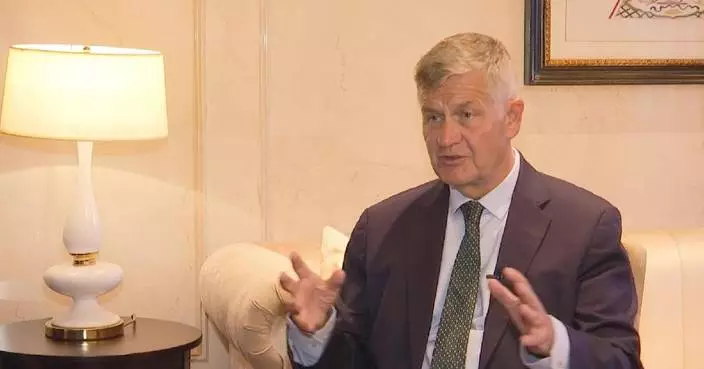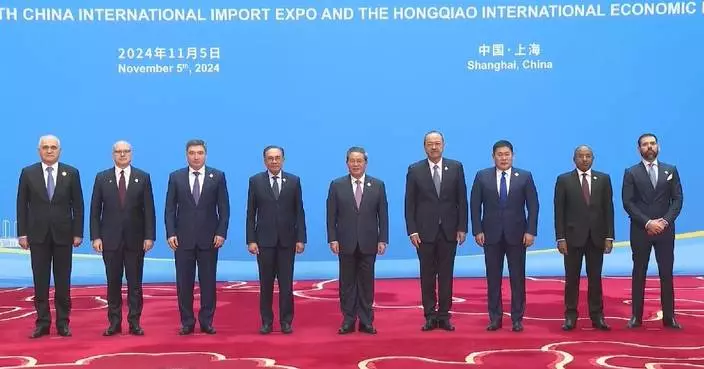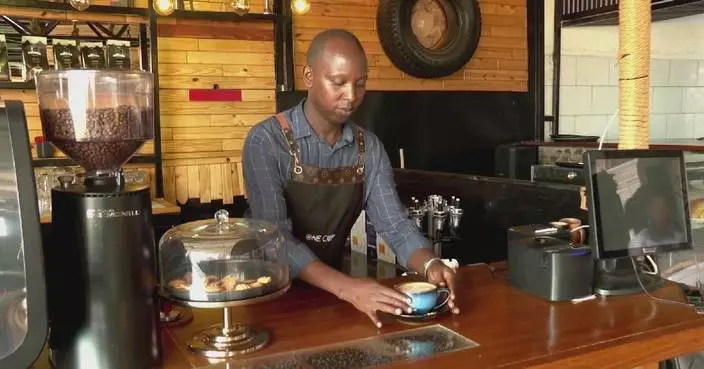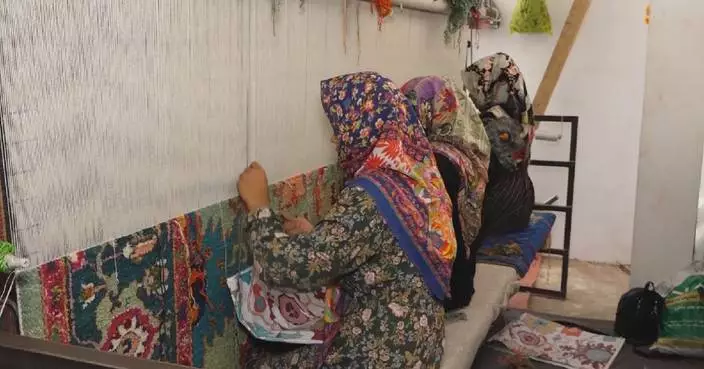The China International Import Expo (CIIE) offers an excellent opportunity for Zambia's wild honey to enter the Chinese market and grow its customer base, said a Zambian honey producer.
Running from Nov 5 to 10 in Shanghai, the 7th CIIE has attracted about 3,500 exhibitors from 129 countries and regions, showcasing a wide variety of imported products from around the world.
Allan Chanda, producer of Sweet Harvest Wild Honey in Zambia, introduced the unique design of his beehives, which differ from the single-layer hives commonly used in the country and help increase honey yield.
"This is an example of a (double layer) hive deployed in the bush. It's got characteristics of mimicking the environment and attracting bees that settle in greater numbers, which also means it is able to produce more honey, more beeswax, more propolis, more yellow jelly, and more venom," said the beekeeper.
Since their first exhibition at the CIIE in 2019, Chanda's honey products have become a regular exhibit at the annual event, gaining popularity among Chinese consumers.
Chanda views the CIIE as an important platform for introducing Zambia's wild honey to the Chinese market, and he believes the boom of the honey industry can create more employment opportunities for Zambia's rural population, contributing to local economic and social development.
"The reason we've looked at the CIIE as a platform for entering the Chinese market is that it gives you an opportunity to interact with customers and companies from throughout China. It's a premier platform that allows you to meet every possible person from China. This year, we are launching honey sweets that you can consume as lollipops in various flavors," he said.
As the world's first national-level import-themed expo, the CIIE is held annually at the National Exhibition and Convention Center in Shanghai.
Since its first edition in 2018, this expo has become an important stage spotlighting China's new development paradigm, a platform for high-level opening-up and a public good for the whole world.
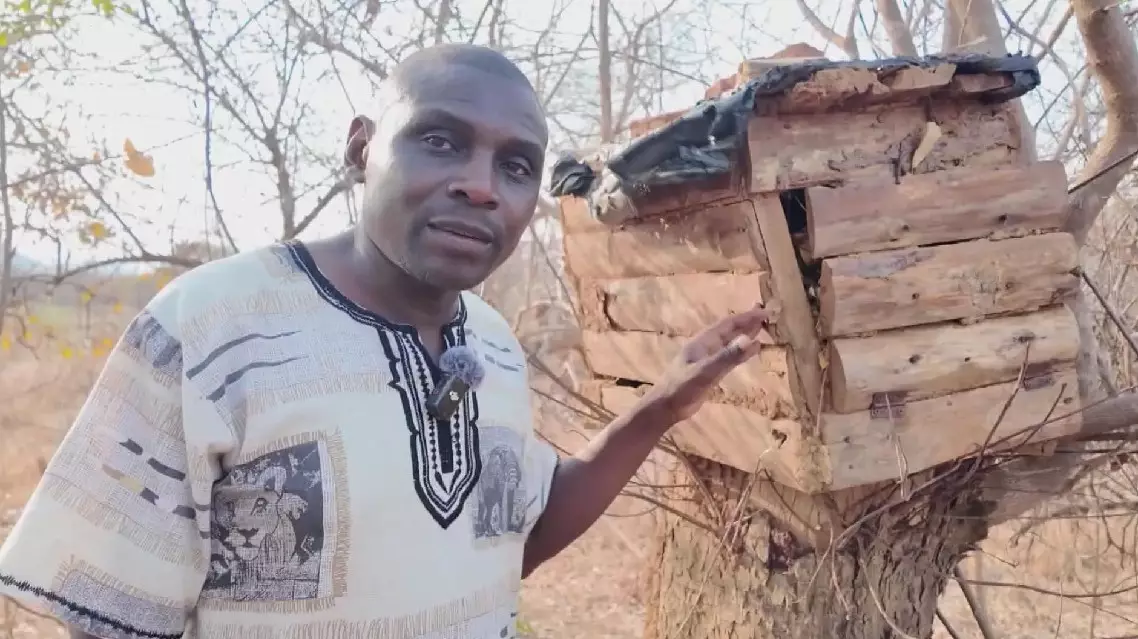
Zambian honey producer sees CIIE as gateway to Chinese market
Experts discussed pathways to building international standards in manufacturing to help eliminate barriers to trade at a sub-forum on the sidelines of the Hongqiao International Economic Forum in Shanghai.
As an important part of the 7th China International Import Expo (CIIE), the Hongqiao International Economic Forum is taking place in Shanghai in tandem with the expo from Nov 5 to 10, inviting more than 260 distinguished guests from political, business and academic circles.
The sub-forum, hosted by the Ministry of Commerce and the National Standardization Administration, attracted about 200 Chinese and foreign guests from standardization research institutions and enterprises in the manufacturing field. The guests had discussions around the need for international standards and future development directions of intelligent manufacturing.
The sub-forum also included an outcome announcement in which the State Administration for Market Regulation released 337 foreign language versions of China's national standards and an international standardization roadmap for smart manufacturing.
"The 337 foreign language versions of national standards include English, French, Portuguese, Cambodian, Vietnamese, Lao and more, and also cover more industrial categories such as mechanical equipment and energy. Nearly 70 percent of them are related to the manufacturing field, which will help us focus on developing new quality productive forces and promote high-quality development of the manufacturing industry," said Guo Chenguang, deputy director of the Standard Innovation Department under the State Administration for Market Regulation.
To date, China has published 2,263 national standards in 11 languages, covering more than 20 fields of the national economy, including agricultural products, food, electronics and electrical appliances.
"I think it's good news. The main efforts you have embarked on is to internationalize the national Chinese standard. Through participation in the ISO system, the Chinese standards can become international standards, as accepted and recognized by everywhere. Through that, we eliminate technical barriers to trade. That is the way where you can facilitate international trade," said Sergio Mujica, secretary general of the International Standardization Organization.
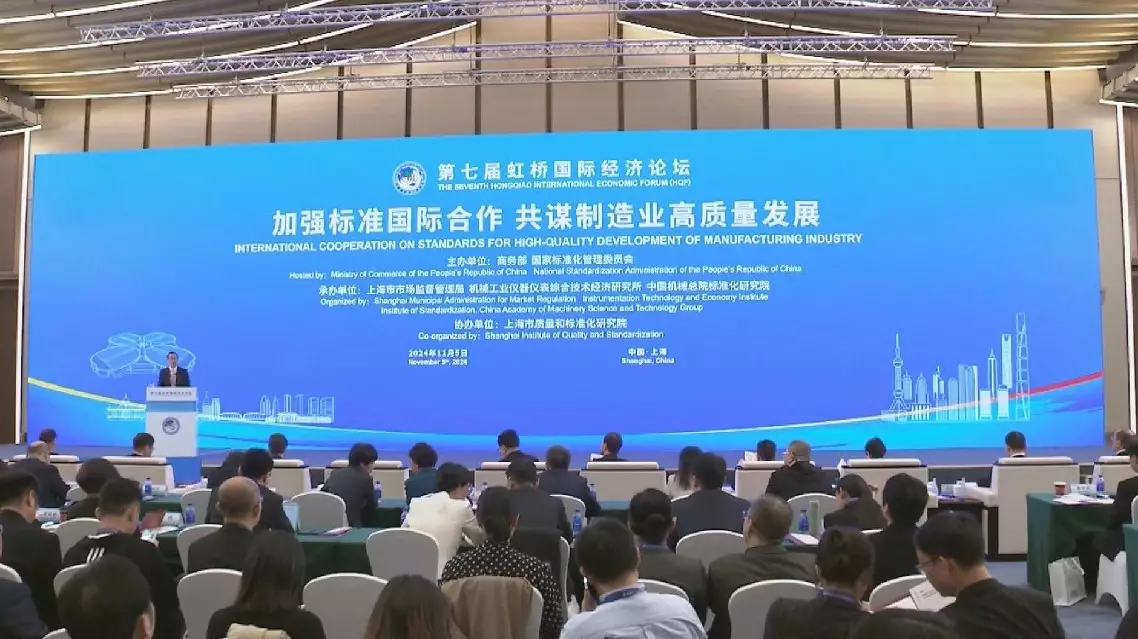
Experts highlight cooperation in int'l manufacturing standards at forum in Shanghai




